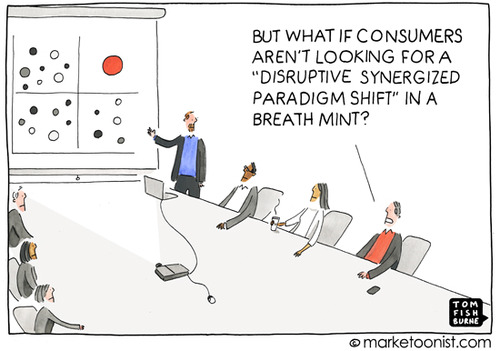I have been diving into the concept of Lean Enterprise. I think this is going to take off in many corporations. The larger, more established enterprises are trying in vain to remain relevant and innovative as the pace of markets and technologies cycles ever faster. Despite their massive balance sheets, troves of talent, and significant market share, their ability to be truly innovative usually falls far short.
Lean Enterprise could help shift much of the inertia in large companies that stifles new ideas. It may not turn companies into lean, mean startup machines of innovation, but it may help with two major pitfalls that plague most new product initiatives.
The first is the lack of custom input early on in the product development cycle. Often customer input is ignored or never filters back from sales to the the engineers and product teams. My friend and entrepreneur Peter told me countless times of this occurring in his work in the medical device industry, thus his motivation to start Enhatch. If he could get surgeon input back to the product teams in a more efficient and organize manner, it could save millions in costly design and product mistakes.
The second is the massive disconnect in the understanding of what disruption really means. Truly disruptive ideas create entirely new ecosystems, change market dynamics, and are leaps ahead of existing technologies and processes. For most enterprises, a new cereal flavor is about as disruptive as it comes. I am being facetious, but they either create something that is mildly iterative or they dive down into some massive skunkworks project that produces a product that is totally divorced from market reality. In short, they develop a flop which we have seen time and again in the marketplace even as recently as Blackberry that were innovators in mobile technologies a decade ago, and are now a shell of themselves.
The moral of this story? Listen to the customers and the market, whether that is an early startup or a massive multinational corporation.




